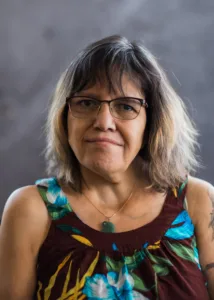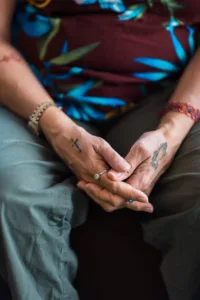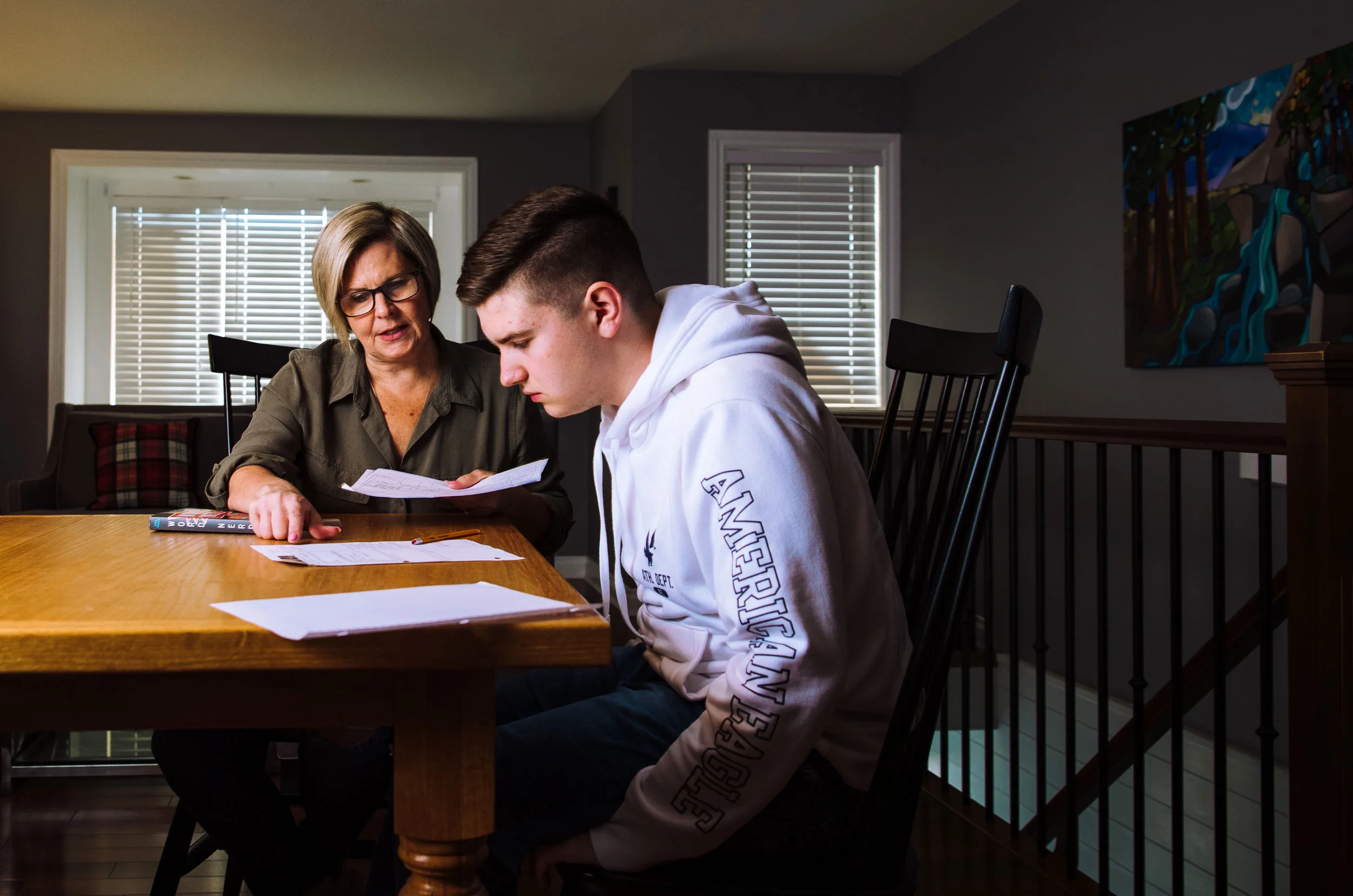Written and photographed by Galen Exo
“I’m Cree-Metis, I’m disabled, a mother of 4 and a Kokum (grandmother)”
 Sandra Pronteau is all these things and more. She’s been an activist for inclusive education in the school system, supported women experiencing poverty and homelessness as a support worker in Vancouver’s Downtown Eastside, and she sits on boards for multiple social justice organizations. She’s an artist, performer and intersectional feminist advocate, and when we spoke, she’d just returned from Montreal where she won the Disabled Women’s Network (DAWN) Canada’s National Hummingbird Award.
Sandra Pronteau is all these things and more. She’s been an activist for inclusive education in the school system, supported women experiencing poverty and homelessness as a support worker in Vancouver’s Downtown Eastside, and she sits on boards for multiple social justice organizations. She’s an artist, performer and intersectional feminist advocate, and when we spoke, she’d just returned from Montreal where she won the Disabled Women’s Network (DAWN) Canada’s National Hummingbird Award.
“I was always a spunky child; I was told I was sassy,” says Sandra, “always said what was on my mind…that’s just who I am as a person.” Sandra grew up in Winnipeg, and is a survivor of the 60’s Scoop, a period in Canadian history in which a large number of Indigenous children were taken from their families and placed into the child welfare system. She was born with congenital birth defects “due to the water contamination in Northern Manitoba. That had to do with a mining company…nickel and mercury got into the water, into the land, and into our food chain.” She had a difficult childhood, moving from one foster home to another, experiencing various kinds of abuse and neglect. When she was a teenager, she decided, “I’m done with these foster homes – I’m going to live my own life.”
When she was pregnant with her first child, Sandra was told that she shouldn’t go through with the birth: “they automatically perceived me as unable to have children, so they wanted me to have an abortion, and they wanted me to be sterilized after that. And so I knew right there that, no, this is my body and I’m going to go through with this…it doesn’t matter if you have a disability; no doctor has the right to decide what you do with your body.” Experiences like this one were formative for Sandra, and made her into a fierce advocate, first for herself and her children and then for other Indigenous women, with and without disabilities. Compelled by her own struggles with ableism, addiction and poverty, she worked for nearly 9 years at the Union Gospel Mission’s Women & Families Centre, a stabilization program providing safe, secure housing and recovery programming for women and children on the Downtown Eastside.
 After leaving her job with Union Gospel Mission, Sandra started to focus her attention on disability advocacy: “I was basically getting myself out there slowly, engaging in the [disability] community. So I started researching more disability organizations and came across Inclusion BC, and they had this event coming up – a Self-Advocate conference in Kelowna.” So, she applied to attend the Self-Advocate Leadership Institute, thinking, “it’ll be a good way to get my foot in the door, meet some people and see how I might benefit from this.” At the event, she was moved by a presentation by Woodlands Institute survivor Richard McDonald: “his story really hit home for me, because being a survivor of the 60s scoop, I was bounced around different homes, but this fellow was institutionalized for years. It was like a crash course on the history of the disability movement.” She left the Institute with a renewed sense of purpose, and hit the ground running: “Ever since then, I’ve been going, going, going. When I finished the conference, I knew – OK, now I have a responsibility to uphold. I’m a part of a new community, and I will continue to work in that field.”
After leaving her job with Union Gospel Mission, Sandra started to focus her attention on disability advocacy: “I was basically getting myself out there slowly, engaging in the [disability] community. So I started researching more disability organizations and came across Inclusion BC, and they had this event coming up – a Self-Advocate conference in Kelowna.” So, she applied to attend the Self-Advocate Leadership Institute, thinking, “it’ll be a good way to get my foot in the door, meet some people and see how I might benefit from this.” At the event, she was moved by a presentation by Woodlands Institute survivor Richard McDonald: “his story really hit home for me, because being a survivor of the 60s scoop, I was bounced around different homes, but this fellow was institutionalized for years. It was like a crash course on the history of the disability movement.” She left the Institute with a renewed sense of purpose, and hit the ground running: “Ever since then, I’ve been going, going, going. When I finished the conference, I knew – OK, now I have a responsibility to uphold. I’m a part of a new community, and I will continue to work in that field.”
At 57 she considers herself an “elder in training,” and wants to use her experience and wisdom to embolden younger generations: “I want to help people living with disabilities to ensure that they have a voice, and the women that have struggled going through the system, and how the system has not been giving our folks a fair chance. It’s all about the drive, passion, commitment and consistency.” She encourages people wanting to be effective advocates to “be in their face, be consistent, and always follow through. It can be exhausting work. If you feel like you’re alone, this is where you have allies. Find your allies and get them involved.”
Sandra’s journey is one of resilience, activism, and unwavering determination. From persevering through the challenges of a traumatic childhood, to confronting ableism and advocating for Indigenous women and people with disabilities, Sandra’s story is a testament to the power of self-advocacy and community support. As she continues to blaze a trail for inclusion and social justice, Sandra reminds us all of the importance of uplifting those whose stories are often silenced. With her wisdom and passion, she paves the way for future generations, embodying the spirit of empowerment and resilience.
A closing message from Sandra:
“Keep in mind that people with disabilities need to be heard, instead of feeling lesser. Treat them with dignity and respect, as though they were a person in your own family.
All my relations,
Sandra”
Do you enjoy real-life stories about inclusion? This article was featured in the latest edition of our monthly newsletter, Inclusion in Action. Subscribe today to receive regular updates with stories like this.
This article is part of our Challenging Misconceptions project.
Want to read more? Browse our newsletter archive here


